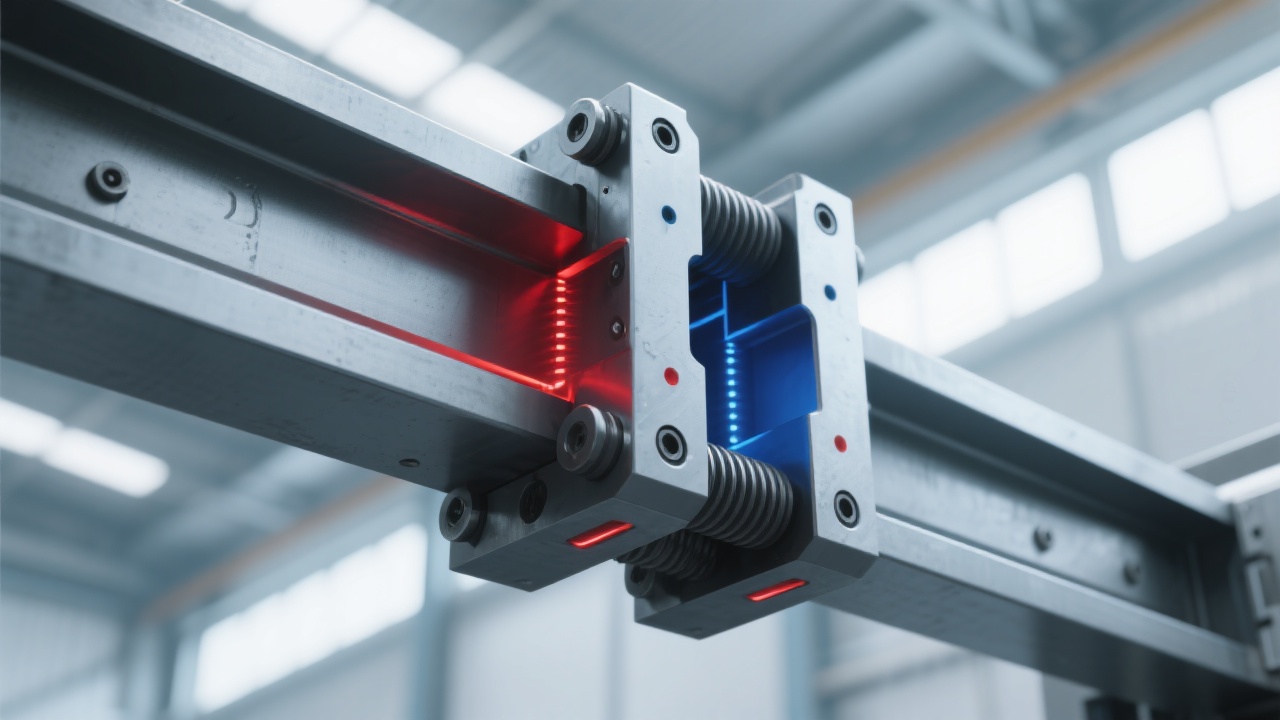
In the highly competitive landscape of the steel industry, automation has become a key factor in enhancing productivity, consistency, and safety. This case study delves into the real - world experience of integrating automated clamps in the hot rolling line of an overseas steel mill, with the application of Dalian Tiding Heavy Industry's self - developed high - temperature pneumatic slab clamps.
The integration process involves seamless docking of the high - temperature pneumatic slab clamps with the PLC control system, robot handling system, and AGV carts. This requires a deep understanding of three core modules: signal communication protocols, control logic design, and safety protection mechanisms.
Signal Communication Protocols: The configuration of signal interfaces is the first step in the integration. The communication between the pneumatic clamps and the PLC system needs to be established through proper signal protocols. For example, in this project, specific signal interfaces were configured to ensure accurate data transmission between the clamps and the control system. This is crucial for the overall operation of the automated system, as it enables the control system to precisely command the movement of the clamps.
Control Logic Design: The action sequence logic setting is at the heart of the control logic design. It determines how the clamps, robots, and AGV carts work together in a coordinated manner. In this case, the movement of the clamps, the operation of the robots for handling, and the transportation of the AGV carts were all carefully programmed to ensure smooth operation. The control logic also includes the setting of the action sequence, which ensures that each step in the process is carried out in the correct order.
Safety Protection Mechanisms: Safety is of utmost importance in industrial automation. A safety interlock mechanism was built to prevent potential accidents. For instance, the system was designed to stop the operation of the clamps and related equipment when certain abnormal conditions were detected, such as over - pressure or incorrect position of the clamps. This safety mechanism provides reliable protection for the operators and the equipment.

This project was implemented in an overseas steel mill's hot rolling line. The high - temperature environment and the heavy - duty nature of the work presented significant challenges. However, through continuous efforts and technical innovation, the project team successfully overcame these challenges. For example, they had to match the air source pressure to ensure the normal operation of the pneumatic clamps in the high - temperature environment. They also calibrated the limit switches to accurately control the movement of the clamps.
One of the customers commented, "The integration solution provided by Dalian Tiding Heavy Industry has effectively improved the efficiency and safety of our hot rolling line. We have seen a significant reduction in manual labor and an increase in the consistency of product quality."

On - site installation and debugging are critical steps in the integration process. Common problems during this stage include air source pressure mismatch and inaccurate limit switch calibration. To address these issues, the project team provided a series of preventive measures. For example, before installation, a detailed inspection of the air source system was carried out to ensure that the pressure met the requirements of the pneumatic clamps. During the debugging process, strict calibration procedures were followed for the limit switches to ensure accurate positioning.
Q: What are the main challenges in integrating pneumatic clamps with a PLC system?
A: The main challenges include signal interface configuration, ensuring accurate data transmission, and setting up the correct control logic to make the two systems work in harmony.
Q: How to ensure the safety of the robot - handling clamp system?
A: A safety interlock mechanism should be established, which includes detecting abnormal conditions such as over - pressure, incorrect position, and immediately stopping the operation when necessary.

This case study provides a comprehensive guide from theory to implementation for the integration of automated clamps in hot rolling lines. With real - world examples, technical illustrations, and practical advice, it offers a one - stop solution to the problems in clamp integration in hot rolling workshops.
Are you facing similar challenges in your hot rolling line automation? Don't miss this opportunity to learn from our successful experience. Download the complete integration manual now or get free technical consultation to take your hot rolling line automation to the next level!

